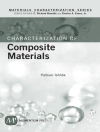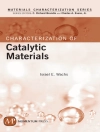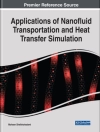This book presents the latest development of fibre/ceramic-polymer composites for biocompatible applications, with a special emphasis on the effect of different types of fibre and ceramic fillers on the characteristics of the composites. The book contains chapters that cover fundamentals, materials used for composites, fabrication, classification, and biomedical applications. The first section of the book provides a brief overview of the fibre and ceramic-based composite materials while the subsequent sections cover the numerous types of fibre and ceramic polymeric composites with emphasis on their potential biomedical applications. Increasingly sophisticated biomedical technologies, such as tissue engineering and regenerative medicine, as well as genetic therapies and controlled drug delivery, are being developed at a breakneck pace, necessitating the development of new materials to meet the specific requirements of these fields. Single-component ceramic or polymer materials that are now available do not meet their requirements. Therefore, composites and hybrid composites have an important role to play. Aside from that, to completely meet the fundamental criteria such as biocompatibility, biodegradability, and acceptable mechanical qualities, it is necessary to find materials that can perform a variety of advanced activities at the same time. This book is a road map not only for the materials scientist but also for researchers, academics, technologists, and students working in composites for biomedical engineering applications.
Inhoudsopgave
Introduction, history of fiber and ceramic filler-based polymer composites for biomedical applications.- Different types of ceramic fillers for polymer matrices with a special emphasis on biomedical applications.- Different types of fiber in polymer matrices for biomedical engineering.- Synthesis, properties, and characterization of fibrous filler.- Structure, properties, characterizations, and biocompatibility of ceramics.- Processing, characteristics and biocompatibility of ceramic filler-based polymer composites.- Silica-polymer composites for biomedical applications.- Glasses/glass-ceramics -polymer composites for biomedical applications.- Clay-polymer composites for biomedical applications.- Hydroxyapatite ceramic-polymer composites for biomedical applications.- Ceramic fillers-based polymer gels for biomedical applications.- Fiber fillers-based polymer gels for biomedical applications.- Ceramic coatings for biomedical applications.- Porous ceramics (scaffolds), porous ceramic composites and their biomedical applications.- Ceramic and fiber fillers reinforced acrylics for biomedical applications.- 3 D printing of ceramics and fiber based composites for biomedical applications.- Zein based polymer composites for biomedical applications.- Bacterial cellulose-polymer composites for biomedical applications.- Tribology, and biodegradability of ceramic/fiber filler-based polymer composites.- Failure Analysis ceramic/fibrous filler-based polymer composites.- Compatibility of ceramic/fiber-based polymer composites.- Modelling and simulation of ceramic/fiber based polymer composites.- LCA, current trends, limitations, clinical aspects, and prospects of ceramic/fiber filler-based polymer composites.
Over de auteur
Dr. Jyotishkumar Parameswaranpillai is currently working as the Director of AU – Sophisticated Testing and Instrumentation Center, Alliance University, Bengaluru, India. He is a prolific editor and researcher who is the author of 170 high-quality international research articles, 100 book chapters, and editor of 40 books. He is a frequently invited speaker and a consultant for multiple organizations internationally. He has received numerous prestigious awards including the DST INSPIRE Faculty Award (Government of India) and the Best Faculty award from KMUTNB, Thailand.
Dr. Sayan Ganguly is a researcher at University of Waterloo, Canada. Before that he pursued his post-doctoral research in Bar-Ilan University, Israel. He obtained his Ph.D. from the Indian Institute of Technology, Kharagpur. He obtained his B.Sc degree in Chemistry (Honours) at Ramakrishna Mission Vidyamandira, Belur Math, University of Calcutta; and then his post-graduation B.Tech from University of Calcutta. After that he then went on to obtain his M.Tech from the University of Calcutta in polymer science and technology. His primary research interests include hydrogels, polymer nanocomposites, EMI shielding, magnetic nanoparticles, 3D printing, and conducting polymer composites.
Dr. Poushali Das is a senior postdoctoral researcher at Mc Master University, School of Biomedical Engineering, Faculty of Engineering, Canada. Previously, she worked as a senior postdoctoral research scientist at Bar-Ilan University, Israel, for two years with the renowned Professor Aharon Gedanken. She completed her Ph.D. degree from the Indian Institute of Technology in Kharagpur, India. She has edited 6 books and published over 65 research publications in reputed international journals. She has been serving as topic editorial board member, and reviewer of reputed journals, and an international consultant. She presented papers at many international conferences. Her research interests include multifunctional luminescent quantum dots and their applications in sensors, antioxidant properties and the biomedical field, polymer/quantum dots nanocomposites, and MXene/polymer nanocomposites sonochemical synthesis of graphene-based nanocomposites.
Dr. Jineesh A.G. is currently working as an assistant professor in the Department of Chemistry, at Alliance University, Bangalore, India. He earned his Ph.D. in Polymer Science and Technology from Indian Institute of Technology in Kharagpur. He also holds an M.Tech. degree in the field of Rubber Technology from Indian Institute of Technology in Kharagpur and an M.Sc. in Chemistry from Cochin University of Science and Technology. Dr. Jineesh has several years of teaching and research experience in the field of polymer chemistry and analytical chemistry. His research focuses on elastomer nanocomposites for electronic, structural, and thermal applications. He also works on the development of biobased elastomer nanocomposites. His recent research activities include synthesizing nanoparticles and nanocomposites for environmental remediation, structural and defence applications and in thermal management systems. Dr. Jineesh has published several international referred journals and book chapters, especially in the field of material science.












